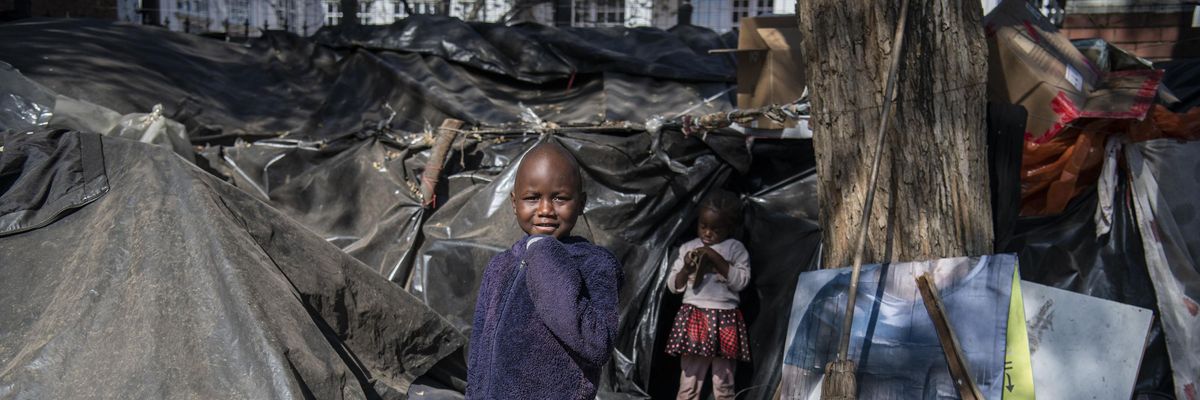Most refugees do not want to leave their homes.
In my family's case, a volcano erupted just 8km (5 miles) away from the only house they ever knew. Black smoke rolled above Lake Kivu, filling our streets, choking us. Conflict from the civil war forced my family to flee again. We then sought safety in Uganda.
According to a recent United Nations report, the number of people forced to flee conflict, violence and persecution has now crossed a staggering milestone--more than 100 million. Of these refugees, nearly half are children.
My father described the Ugandan refugee camp as a boundless desert, with scant supplies and little water. Our family remained there for two and a half years on the brink of starvation. Yet, we persisted. We survived and by some miracle, were granted asylum in the United States.
To this day, the smell of rotisserie chicken draws me back to my first meal in the United States. I remember the plastic container, the warmth of the chicken creating condensation on the lid, juices seeping out of the moist meat, and the pattern of the hotel bedspread upon which my family of 10 sat in Salt Lake City, Utah--a world away from our beloved home in Africa.
This modest meal exemplified joy and possibility after such strife. Sitting together, enjoying this bounty, we did not have much other than the clothes on our backs, but we felt like the richest people in the world. Our wealth was not measured in monetary value. We were rich within our hearts because we were no longer afraid. We were no longer hungry. We were safe.
My family and I are the lucky ones. According to a recent United Nations report, the number of people forced to flee conflict, violence and persecution has now crossed a staggering milestone--more than 100 million. Of these refugees, nearly half are children.
Millions are exploited. Their journeys are often deadly and when they do arrive at a place of safety, they are denied access to basic rights such as education and healthcare.
The conflict in Ukraine has brought unfathomable heartbreak. But I would argue that it has also shown humanity at its best. More than 7.6 million people have fled Ukraine. People opened their homes and offered warm meals. Neighbouring countries have opened schools for Ukrainian children and are providing healthcare to families fleeing violence. The European Union offered temporary protection to migrants. Organisations like the Red Cross and Red Crescent have offered mental health support to help heal the invisible wounds of war. The response has been nothing short of incredible.
While Ukraine has dominated the headlines, I implore you to make this the moment where you open your hearts to the plight of refugees from around the world. My message to people, governments and world leaders is simple: please keep this spirit of generosity alive. Violence and conflict continue around the globe. Migrants from all over the world need your compassion.
Today, I am a sophomore at the University of Utah. I plan to go to law school and am committed to helping others. Migrant voices like mine need to be at the heart of the policy process in this country and on the global stage.
Last month, I visited the UN, where global leaders gathered to propose solutions to the complex problems of migration. While there, I had the opportunity to meet with Francesco Rocca, president of the International Federation of Red Cross and Red Crescent Societies (IFRC). He said, "Ethnicity and nationality should not become deciding factors in saving lives." I agree. Protecting people forced to flee their homes, no matter where they are from, is our shared responsibility.
I firmly believe that if you have the knowledge, it is within your power to help change the world. The solutions to the challenges of global migration are complex and varied but our response to the conflict in Ukraine demonstrates that we can work together to find tangible solutions at the local, regional and global levels to help those who need it most. We have more work to do to help migrants around the world but I know we can do it together. There are families still waiting to share their first meal together in a safe place. Let us help them do so.

